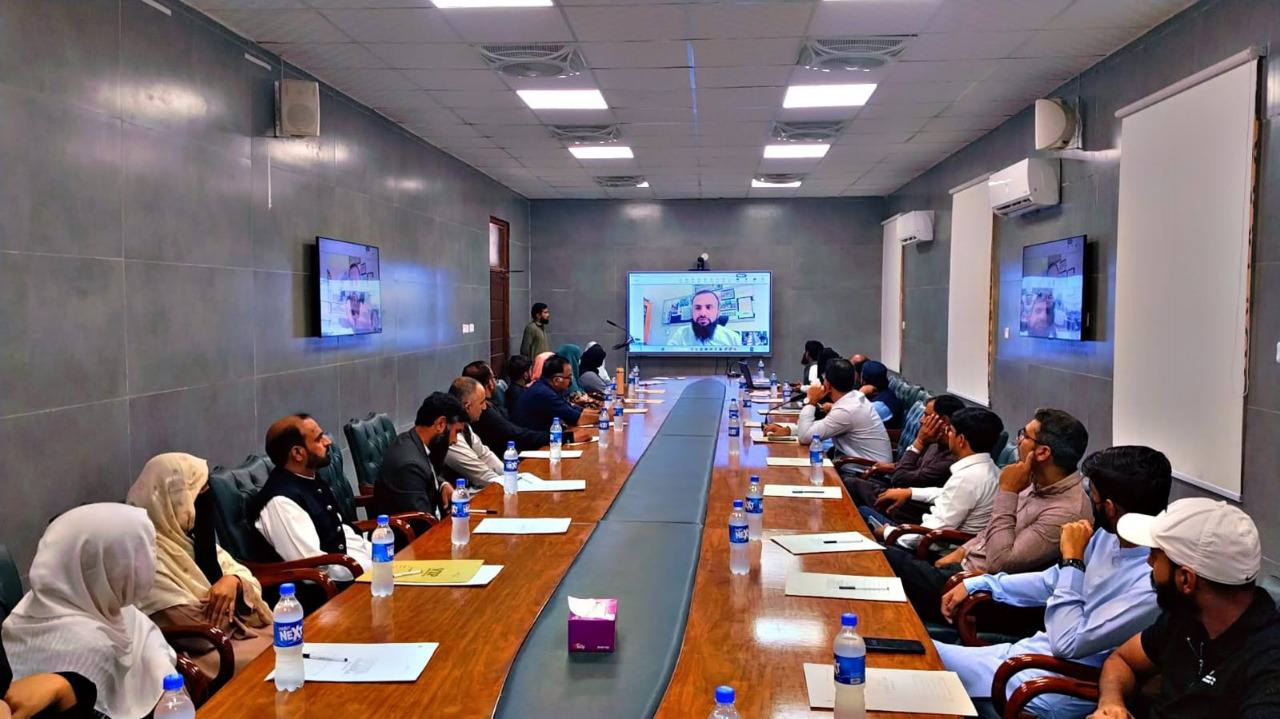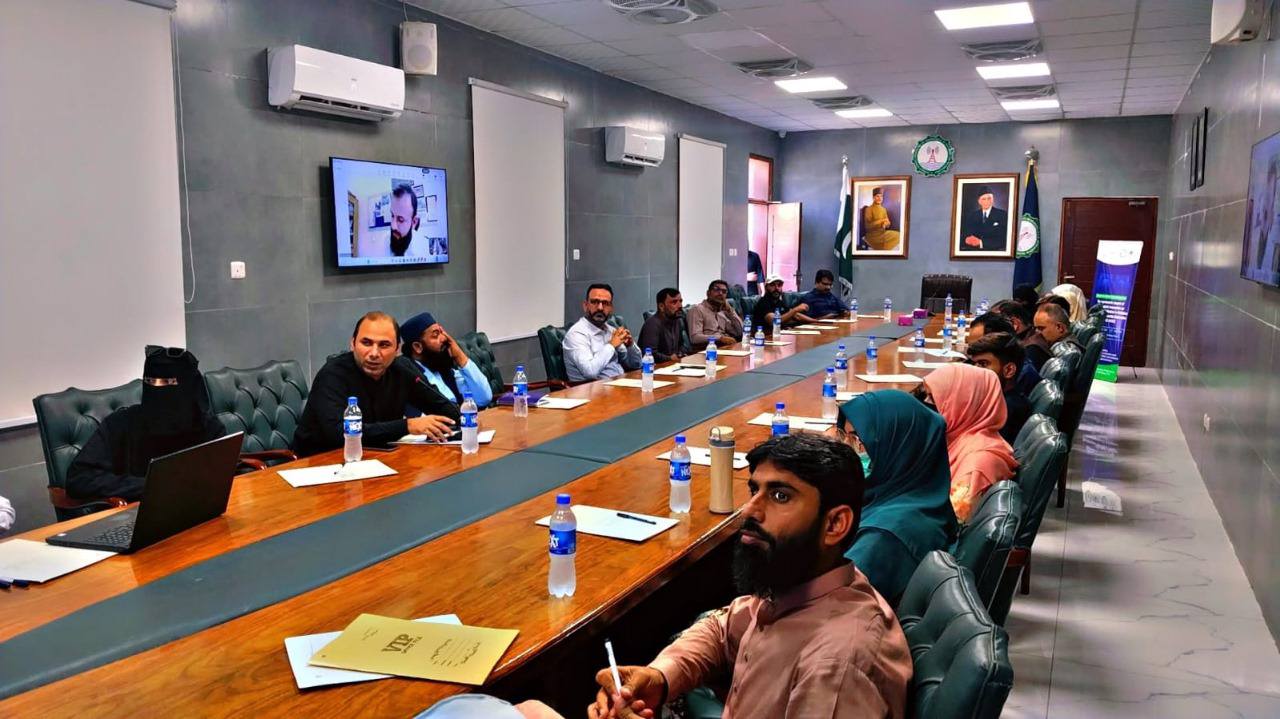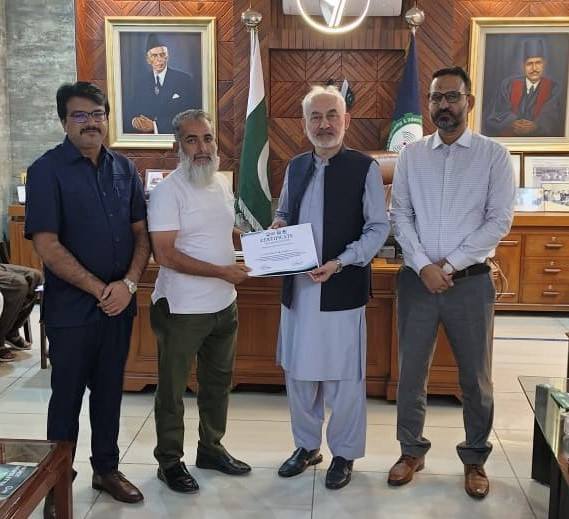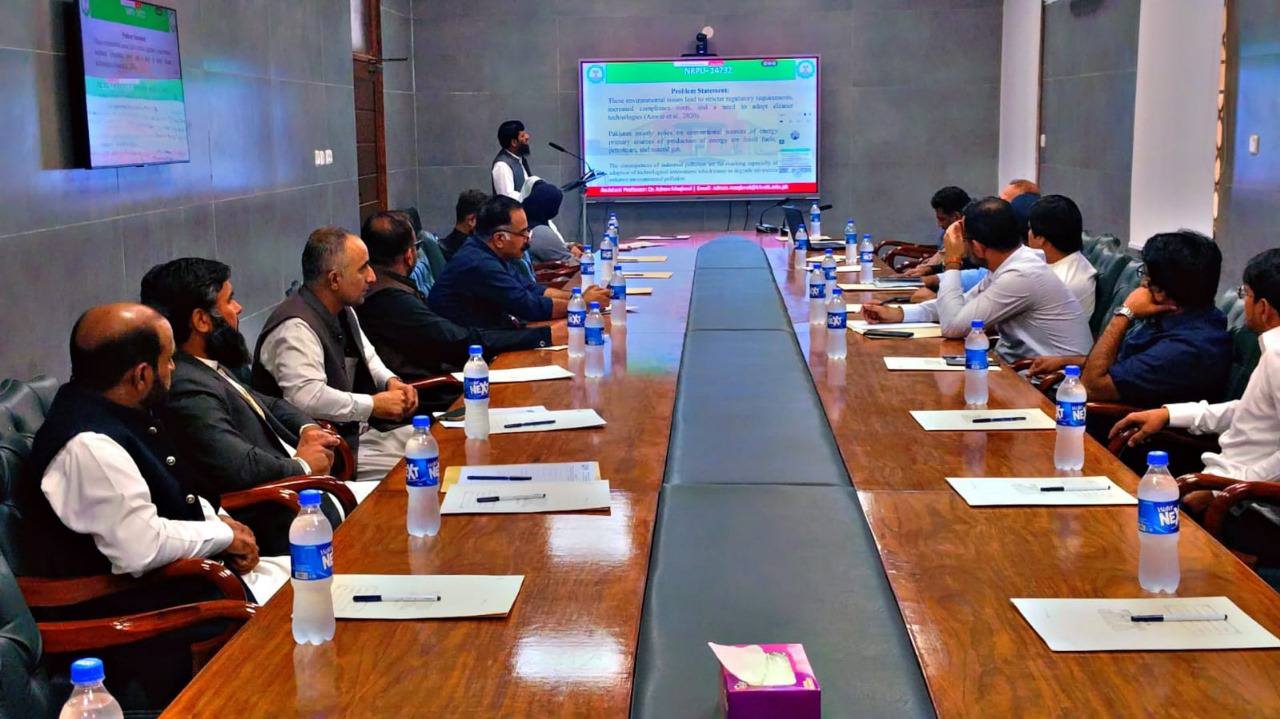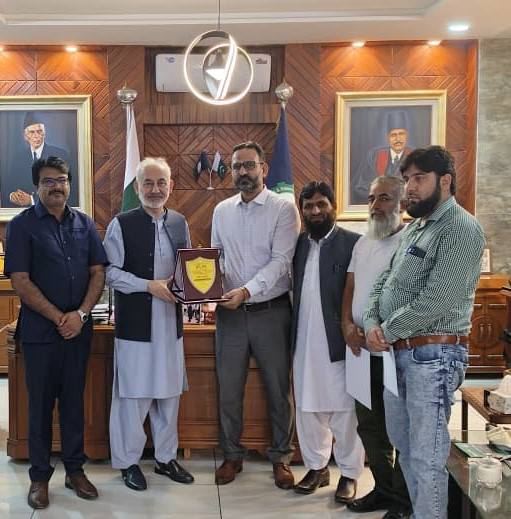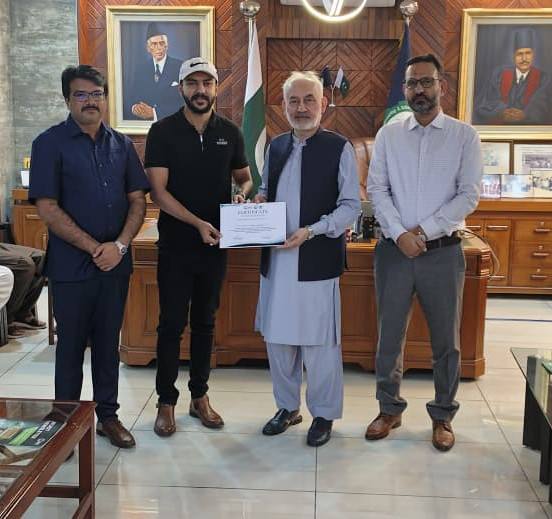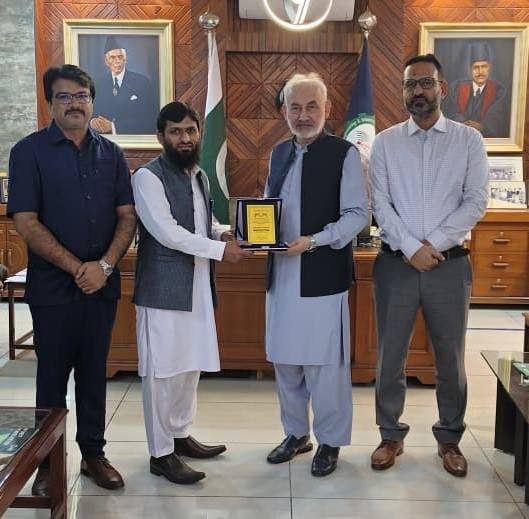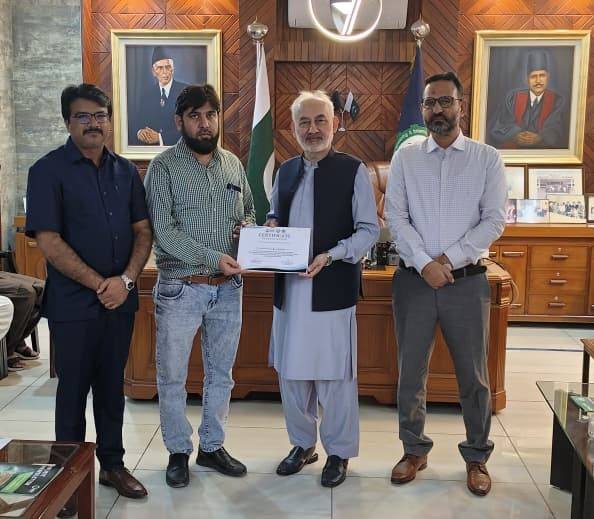KFUEIT Workshop Pushes for Green Technology and Interdisciplinary Solutions to Tackle Industrial Pollution
RAHIM YAR KHAN, [Date of Workshop] – Khwaja Fareed University of Engineering and Information Technology (KFUEIT) successfully concluded a consultative workshop focused on the critical relationship between technological innovation and environmental pollution, organized under the prestigious HEC NRPU Project No. 20-14732.
The workshop, titled "Asymmetric impact of technological innovation on environmental pollution in Pakistan using quantile estimation," brought together research scholars from KFUEIT and key representatives from the local industry to discuss urgent environmental challenges and propose policy-level solutions. The event was a collaborative effort by the Office of Research, Innovation and Commercialization (ORIC) KFUEIT, HEC, and the Institute of Business Administration (IBA) KFUEIT.
Dr. Adnan Maqbool, Principal Investigator (PI) of the project, presented his research findings to the participants. Dr. Maqbool highlighted the existence of various technologies capable of mitigating environmental pollution originating from industrial sources. He underscored the necessity of robust policy interventions to minimize the current pollution load, ultimately advocating for a mandatory shift of industrial technology towards green technology adoption across Pakistan.
The workshop also featured a compelling online address from Dr. Muhammad Hafeez of the Institute of Business Management Sciences (IBMS), University of Agriculture. Dr. Hafeez emphasized the vital role of eco-innovation as the primary strategy for managing global environmental challenges. Furthermore, he elaborated on several financial initiatives and incentives being offered by the Government of Pakistan aimed at facilitating the widespread adoption and improvement of green technologies within the industrial landscape.
Summing up the day’s discussions, Engr. Dr. Muhammad Saif Ur Rehman, Director ORIC KFUEIT, provided crucial context. He stressed that environmental pollution is a shared global challenge that cannot be solved by individual entities. He argued that an interdisciplinary approach—combining engineering, policy, and finance—is absolutely necessary to propose valid and workable technological solutions for the industry. Dr. Rehman further highlighted a key constraint: "Any innovative technology, regardless of its efficacy, cannot be scaled up without comprehensive financial integration and rigorous enforcement of environmental regulations."
The consultative workshop concluded with a formal session where the Worthy Vice Chancellor presented souvenirs to the resource persons in recognition of their valuable contributions and distributed certificates to the participating industrial representatives. The event successfully fostered a strong dialogue between academia and industry, setting a clear agenda for future research and policy development in the area of environmental sustainability.
